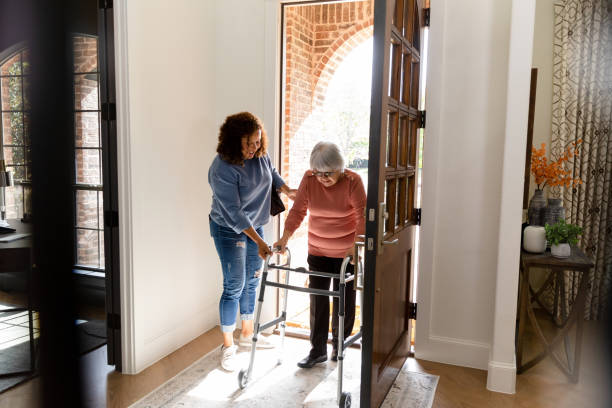As the global population ages, the focus on health and wellness in senior living communities becomes increasingly paramount. With advancements in healthcare and improved longevity, seniors are now presented with the opportunity to live longer, more fulfilling lives. However, to truly enhance their quality of life, it’s essential to address not only their medical needs but also their overall well-being. In this article, we delve into the significance of health and wellness in senior living, exploring various aspects such as physical health, mental well-being, social engagement, and environmental factors, all contributing to a holistic approach towards promoting a fulfilling life for seniors.
Understanding Health and Wellness in Senior Living:
- Defining Health and Wellness: Health encompasses not just the absence of illness but a state of complete physical, mental, and social well-being. Wellness goes beyond health, focusing on proactive measures to maintain and improve one’s health in various dimensions.
- Importance of Senior Living: Senior living communities provide a supportive environment tailored to meet the unique needs of older adults, promoting independence, safety, and overall well-being.
- Physical Health:
- Exercise and Mobility: Regular physical activity is crucial for seniors to maintain strength, flexibility, and balance, reducing the risk of falls and improving overall health.
- Nutrition: Proper nutrition is essential for seniors to support healthy aging, boost immunity, and prevent chronic diseases such as diabetes, heart disease, and osteoporosis.
- Preventive Care: Regular health screenings, vaccinations, and preventive measures help identify and address health issues early, ensuring better outcomes and quality of life for seniors.
- Mental Well-being:
- Cognitive Stimulation: Engaging in mentally stimulating activities such as puzzles, games, and lifelong learning helps seniors maintain cognitive function and prevent cognitive decline.
- Emotional Support: Social connections, counseling, and support groups play a crucial role in addressing loneliness, depression, and anxiety among seniors, promoting emotional well-being.
- Stress Management: Techniques such as mindfulness, meditation, and relaxation exercises help seniors manage stress and improve their overall mental health.
- Social Engagement:
- Importance of Social Connections: Maintaining social relationships and participating in community activities foster a sense of belonging, purpose, and fulfillment among seniors.
- Volunteerism and Giving Back: Engaging in volunteer work and contributing to the community not only benefits others but also provides seniors with a sense of accomplishment and meaning in their lives.
- Intergenerational Programs: Interaction with younger generations through activities such as mentoring, tutoring, and shared hobbies promotes mutual understanding and enriches the lives of both seniors and younger individuals.
- Environmental Factors:
- Age-friendly Design: Senior living communities should be designed with features such as accessible layouts, safety measures, and amenities that cater to the needs of older adults, promoting independence and mobility.
- Outdoor Spaces: Access to green spaces, gardens, and walking paths encourages seniors to engage in physical activity, enjoy nature, and experience a sense of tranquility and well-being.
- Technology Integration: Leveraging technology such as telemedicine, smart home devices, and virtual reality enhances access to healthcare services, promotes safety, and facilitates social connectivity for seniors.
- Promoting Quality of Life:
- Individualized Care: Recognizing that every senior has unique needs, preferences, and abilities, personalized care plans ensure that their physical, mental, and social well-being is adequately addressed.
- Holistic Approach: Integrating various aspects of health and wellness, including physical, mental, social, and environmental factors, promotes a holistic approach towards enhancing the quality of life for seniors.
- Empowerment and Autonomy: Empowering seniors to make informed decisions about their health, lifestyle, and care fosters a sense of control, dignity, and autonomy, enhancing their overall well-being.
Conclusion:
Health and wellness play a pivotal role in promoting the quality of life for seniors in living communities. By addressing physical health, mental well-being, social engagement, and environmental factors, these communities can create an environment conducive to healthy aging, independence, and fulfillment. Embracing a holistic approach that recognizes the unique needs and preferences of each individual empowers seniors to lead meaningful and fulfilling lives in their later years. As we continue to advance in healthcare and senior care practices, prioritizing health and wellness will remain essential in ensuring a high quality of life for older adults around the world.
